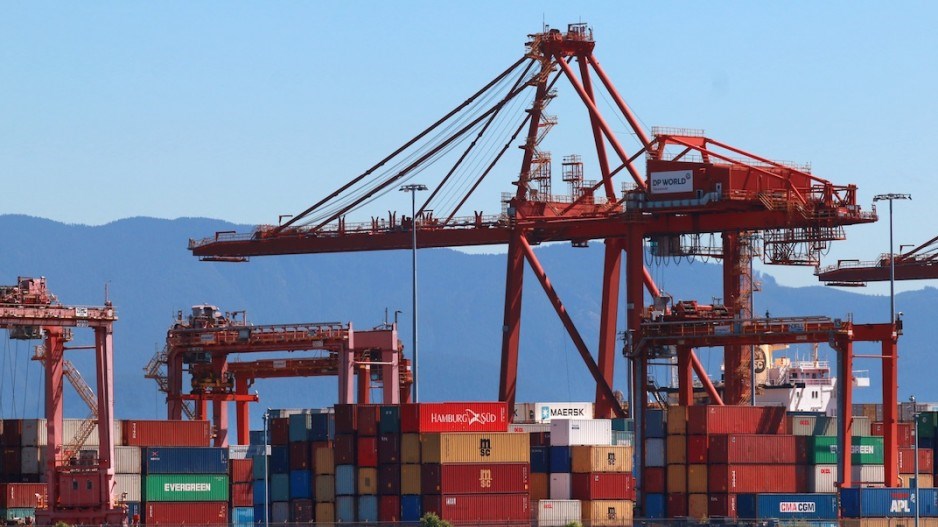The union and employers association serving Canada’s West Coast ports returned to bargaining Wednesday in hopes of averting a prolonged port shutdown.
“We are hopeful we can reach an agreement,” BC Maritime Employers Association chairman Jeff Scott said Wednesday. “I can’t get into details.”
The BCMEA said May 28 it would lock out longshoremen in B.C.
The notice came just two days after the start of what the International Longshore and Warehouse Union Canada (ILWU) called limited job action, which includes a ban on overtime.
Shippers and academics warned Wednesday that a prolonged dispute at ports up and down the coast and on Vancouver Island would severely disrupt supply chains, strangle shipping capacity, back up goods and damage the national economy.
ILWU was ready for a full walkout at 7 a.m. Monday, but instead instituted a ban on overtime and other actions without picket lines at GCT Global Container Terminals’ Vanterm and GCT Deltaport facilities in the Vancouver area.
ILWU president Rob Ashton’s voicemail was full, and he could not be contacted.
Preserving jobs in the face of port automation and site safety are among concerns he has raised.
Those concerns are shared by
Shipping companies have complained that
Both Scott and Port of Prince Rupert President Shaun Stevenson downplayed concerns about automation.
“We feel the investment in automation secures existing jobs,” Scott said.
Stevenson said Prince Rupert currently has no
A lockout would affect all ports in Canada’s Asia Pacific Gateway – including the private, northern facility in Stewart. It would not include cruise ship operations or employees required to service grain vessels.
Port Metro Vancouver said that, based on 2018 cargo volumes and average 2018 commodity prices, the estimated cargo value that would be affected by a strike is $615 million per day.




